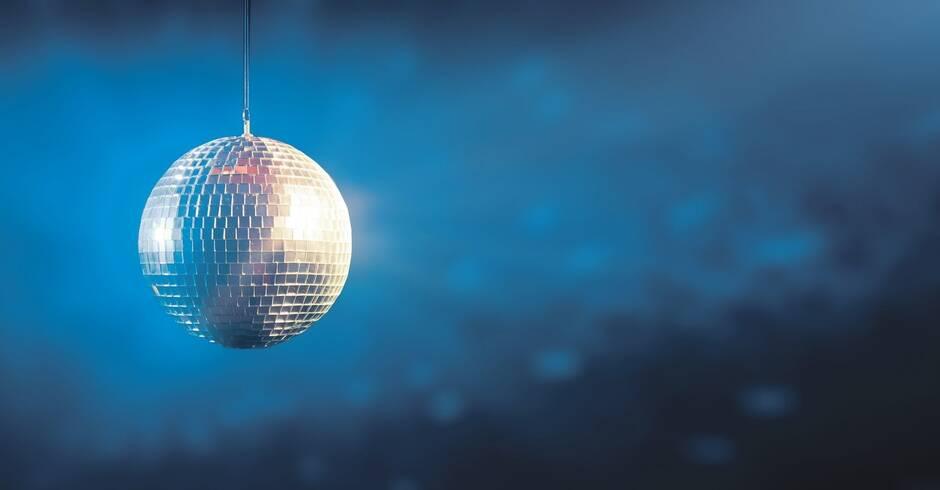
By Michael Ossenkopp
Aachen.Autumn 1959: The Austrian merchant Franzkarl Schwendinger operates a small, rustic feeder in Aachen.But with little success.A new idea is needed to fill the shop with life again.So he designs the restaurant and gives him the new title "Jockey danceable".That should sound modern - and actually became a trendsetter.
At first, however, Schwendinger has a problem: at the time it is common for a live band to play for dance.But the host cannot afford it.At the opening, he is therefore involved in a Cologne opera singer who is supposed to get the guests going with popular music - played by records.But the man only puts on one disc after another without a word, the mood is more than a mau.
The then 19-year-old newspaper volunteer Klaus Quirini is also on site, who is supposed to report on the "new dance shed" for the Aachener Neue Ruhr Zeitung.His enthusiasm is also limited."It was totally boring.We blasphemed.Then the owner came to me and asked if I could do that better, "recalls Quirini," then I stood out."
In his first announcement, he still has to solve his tongue with a few whiskey: "Ladies and gentlemen, we roll up the pants legs and let water into the hall, because a ship will come with Lale Andersen."He received thunderous applause for this.Soon the youngster loses his initial shyness.
He has 1000 sayings in stock, is a announcer, preliminary dancer and mood cannon in one person.For each title, the 1.90 meter tall and only 65 kilograms of light slaks moves in rhythm and heats up the party mute powerfully.But his family met the new hobby with suspicion.A Grand cousin Quirinis is a regional court director in Bonn and especially on the "Spiegel" title, his father has built up the German bank economically after the war-in short: the boy should become better than (sound) plate layers.
But it turned out differently.First, the young man had licked blood on his first appearance and quickly recognized his talent.He hired it for 800 marks a month."A fortune for me at the time," says Quirini.And because the traineeship will soon run out, he exchanges the typewriter with a record player.As a compromise to the family, Quirini promises not to appear under his real name.He rummages in his record boxes and is called "Heinrich" - inspired by "Oh Heinrich, I only have you", a song by Trude Lord.Heinrich soon hangs up every evening - and the scales are buzzing until the early hours of the morning.
The first discotheques in the world were already in the occupied Paris of the Second World War.But it was still common for small music bands to play live.DJs in turn already existed on the radio, for example Chris Howland.But the mix of music from the turntable and brisk sayings directly from the mixer next to the dance floor makes Quirini the first disc jockey in the world.At first it is smiled at.The idea has no future.And the music from the canned food is dismissed by the competition that makes her bands still perform live as "dead".Nevertheless, the idea "dance operation with record plus record ripen" revolutionizes an entire industry.The term "discotheque" only establishes itself from the mid -1960s.

The "Heinrich Nights" speak beyond the borders, soon visitors come from the nearby neighboring countries of Holland and Belgium.The "Jockey Tanz Bar" still has a rather rustic interior with massive tavern furniture.Later the legendary "Scotch Club", with dark wooden furniture and seating sets in Schottenkaro.The program now also includes fashion shows with dancing "mannequins".Stars like Gilbert Bécaud, Howard Carpendale or Udo Jürgens have a look.
And Aachen mushed into the undisputed disco-mecca.There are more than 40 discos within a few years.The triumphal march finally moves through the countries and metropolises of all of Europe, more and more operators are copying Schwendinger's idea and also the "DJ Heinrich".Visitors appreciate the large selection of different music and the rich sound.Gradually the makers specialize in certain styles, new clubs are created everywhere.At the end of the 1960s, the discotheque scene is multi-layered, there are beat clubs, heavy metal, pop and hit meetings.The motto for night owls will deliver Ilja Richter's TV cult show "Disco" from 1971: "Light from - Spot to".
Only at this time, with more than ten years late, does discos also reach the United States.Initially only in underground gay clubs hip, the radio and disco movement becomes unstoppable to the mass phenomenon. Jetzt gibt es sogar eigene Disco-Musik, Songs wie "Kung Fu Fighting" von Carl Douglas, "Shame, Shame, Shame" von Shirley & Company und "You Sexy Thing" von Hot Chocolate ebnen den Weg.
The highlight was reached in 1977 when the Bee Gees with hits like "Stayin’ Alive "from the film" Saturday Night Fever "storm all hit parades with John Travolta.February, notorious night clubs such as the "Studio 54" in New York, everyone knows glittering palaces with the distinctive disco ball and the elaborate technology with light and laser shows are becoming standard elements.The difference between a discotheque and a disco says Quirini: "In a discotheque, music is brought to life through moderation, in a disco through effects such as fog or glitter balls."
Almost all adolescents - from the Swingin ’sixties to this day - combine a large part of their youth memories with a discotheque.The weekends there stand for fun, dancing, meeting friends, drinking alcohol, getting to know, maybe the first flirt, cuddling or even meeting with today's partner.Every year up to 100 million visitors in disco fever gave the owners in the Federal Republic of golden times for decades.
Also in the GDR, around 50 million guests flocked to the domestic dance pleasure per year.Although the state leadership decided in 1964 to condemn western rock and pop music as "imperialist unculture", the storm could not be stopped at the disco events.For the "state -recognized record topper", as the DJs were officially called in the east, no easy task, since 60 percent of the music played had to come from the GDR or the socialist brother countries.But the young party fans preferred to hear Stones and Beatles.
Klaus Quirini founded various professional associations for DJs and disco operators in the 1960s and 1970s.He is now a consultant, author, lecturer and expert in music law.Economic success brought him his company "Neuphone" with the sale of disco balls, lights and smoke machines.The conclusion of the DJ pioneer is: "The discotheque scene has hardly changed in the past 60 years.In the past, only much more was drunk."But there was a very serious change - the dress code.In the "Jockey Dance Bar" Frank Elstner or Udo Lindenberg simply flashed despite the celebrity bonus - because they didn't wear a tie.
The world's first discotheque has been closed since 1992.The new owner of the "Scotch Club" had no longer received a operating permit - the neighbors were too loud to the neighbors.In the meantime there was a fashion boutique in the restaurant, but it still had the music in its name: tango.Today the shop in downtown Aachen is empty.
And DJ Heinrich?Today it is 79 and confessed heavy metal fan.When Britney Spears are played somewhere, he gets up and go, he once told.He hasn't put on the plates for a long time, and he doesn't have many vinyl discs anymore.Music hears Klaus Quirini today about streaming services.







